- Home
- James Rollins
City of Screams
City of Screams Read online
City of Screams
JAMES ROLLINS
and
REBECCA CANTRELL
Contents
CITY OF SCREAMS
An Excerpt from The Blood Gospel
Prologue
Part One
Chapter One
Chapter Two
About the Authors
Also by James Rollins
Also by Rebecca Cantrell
Copyright
About the Publisher
CITY OF SCREAMS
October 23, 2:09 P.M.
Kabul, Afghanistan
IT STARTED WITH the screams.
Sergeant Jordan Stone listened again to the snippet of an SOS that had reached the military command in Kabul at 4:32 that morning. He rested his elbows on the battered gray table, his palms pressing the oversize headphones against his ears, trying to draw out every clue the recording might offer.
A lunch of lamb kebabs and local lavash bread sat forgotten, though the smell of curry and cardamom still permeated the air, contributing to the nausea he felt as he listened. He sat alone in a small, windowless room at the Afghan Criminal Techniques Academy, a one-story nondescript building at the edge of Bagram airport outside Kabul.
But his mind was out there, lost in that firefight recorded on tape.
He strained, his eyes closed, listening for the fourteenth time.
First screams, then a spatter of words:
They’re coming again . . . helpushelpushelpus . . . !
The sound faded in and out, but that did nothing to hide the terror and panic of those simple words.
Next came gunfire—frantic, sporadic, uncontrolled, echoing around—interspersed by more chilling screams. But what raised the small hairs on the back of his neck was the silence that followed, dead air as the radio continued to transmit. After a full two minutes, a single phrase rasped forth, distorted, unintelligible, as if the speaker’s lips were pressed close enough to brush the microphone. That intimacy more than anything set his teeth on edge.
Jordan rubbed his eyes, then pulled the headphones from his ears. Plainly the situation out there had ended badly in the wee hours of the morning. Hence the need for Jordan’s team to be summoned. He and his men worked for JEFF, the Joint Expeditionary Forensic Facility, out of Kabul. His team served as crime scene investigators for the military: gathering evidence from insurgent suspects, examining and testing homemade bombs, tearing down mobile phones found at battlefield sites or ambushes.
If there was a mystery, it was their job to solve it.
And they were good at what they did. They’d solve this one, too.
“I’ve got more intel,” Specialist Paul McKay said as he entered and plopped down into a metal chair. It squeaked under his weight. The man stood a head taller and a belly wider than Jordan, and he knew his business, recruited out of an Explosive Ordnance Division. Smart and unflappable. “That recording came from an archaeological team up at Bamiyan Valley. Four men and a woman. All Americans. Command sent a team of Rangers to secure the scene. We’ve got an hour to figure out what we can here, then we’re supposed to follow them out into the field.”
Jordan nodded. He was used to the pressure, liked it even. It kept him running, kept him from thinking too much. “I’m going to work on this message. You and Cooper get a full murder kit together and meet me at the chopper.”
“You got it, Sarge.” McKay tossed him a quick salute and hurried out.
Jordan listened to the mysterious phrase at the end of the message again, then called in translators. That didn’t help. None of them could even tell him what language it might be; not even the local Afghanis recognized it. A few claimed that it wasn’t human at all, but some kind of animal.
Someone quickly tracked down a British historian and archaeologist, Professor Thomas Atherton, who had been working with the team in Bamiyan, and brought him to Jordan. A fit and sturdy scholar in his early sixties, the archaeologist had come to Kabul two days before to have a broken arm set. As the historian listened to the screams, he grew pale. He ran one hand through his well-trimmed gray hair.
“I think that’s my team, but I can’t be certain. I’ve never heard them scream like that.” He shuddered. “What could make them scream like that?”
Jordan handed him a Styrofoam cup of water. “We have a chopper full of Rangers on their way to help them.”
The professor looked like he knew such aid would arrive too late. He adjusted his wire-rimmed glasses on his narrow nose and said nothing. When he lifted the cup, his hand trembled so much that water spilled onto the desk. He set the cup back down, his cast clunking against the table.
Jordan gave him a minute to pull himself together. Listening to his colleagues’ deaths had hit him hard, a natural reaction.
“That last phrase.” Jordan rewound the recording to that final whispery phrase. “Do you know what language it is?”
He played it again for Atherton.
A muscle under the professor’s eye twitched. “It can’t be.”
He gripped the edge of the table with both hands, as if he expected it to fly away. Whatever it was, it unnerved him more than the screams had.
“Can’t be what?” Jordan prompted.
“Bactrian.” The professor whispered the word. His knuckles whitened as he tightened his grip on the table.
“Bactrian?” Jordan had heard of Bactrian camels, but never a Bactrian language. “Professor?”
“Bactrian.” The professor stared at the headphones as if they were lying to him. “A lost language of Northern Afghanistan, one of the least known of the Middle Iranian dialects. It hasn’t been spoken since . . . for centuries.”
Strange.
So someone had attacked a group of archaeologists—then left a message in an ancient language. Or had the message come from a survivor? Regardless, to Jordan, that didn’t sound like a standard insurgent attack. “Can you tell me what it means?”
The professor didn’t lift his eyes from the table when he answered. “The girl. It means the girl is ours.”
Even stranger.
Jordan shifted in his chair, anxious. Were those final words a threat? Did they indicate that one of the archaeology team—a woman—was still alive, maybe being held hostage or tortured? A few years ago he might have wondered who would do such a thing, but now he knew. When it came to dealing with Taliban forces or the isolated tribesmen, nothing surprised Jordan anymore.
And that worried him.
How had a farm boy from Iowa ended up in Afghanistan investigating murders? He knew he still looked the part, with his wheat-blond hair, clear blue eyes, his square-jawed face. No one needed to see the Stars and Stripes sewn onto the shoulder of his fatigues to know he was American. But if you looked closer—at the scars on his body, at what his men called his thousand-yard stare—you’d see another side of him. He wondered how well he would fit in those cornfields of his former home. If he could ever go back.
“How many women were there at the site?” Jordan asked.
The door opened and McKay poked his head in, a finger pointed at his wrist.
Time to go.
Jordan held up one hand, telling him to wait. “Professor Atherton, how many women were at the site?”
The professor stared at him a long second before answering. “Three. Charlotte. I mean, Dr. Bernstein, from the University of Chicago; a local woman who cooked for us; and her daughter. A little girl. Perhaps ten?”
Jordan’s stomach churne
d, upset at the thought of a little girl caught in what sounded like a massacre. He should have felt outrage, too. He searched for it, but found only disillusionment and resignation.
Am I that hardened?
October 23, 4:31 P.M.
Bamiyan Valley, Afghanistan
JORDAN STARED OUT the chopper’s window at the bowl-shaped valley below. Framed by snow-dusted mountain ranges to the north and south, the entire valley stretched thirty miles long, an oasis of farmlands and sheep ranches nestled between the tall, stony peaks of the Hindu Kush. Though only a short hop by helicopter over the mountains, the city of Kabul seemed a million miles from this isolated valley.
They circled the empty village where the archaeologists had set up their camp. The village was little more than a small cluster of a dozen mud-brick buildings, some with thatched roofs, others topped by rusted metal, a few open to the snowy sky. It didn’t look as if anyone had lived there for a long time before the archaeologists moved in.
Snow fell around them, thick, fluffy flakes that were collecting on the ground and obscuring any evidence. Jordan shifted impatiently in his seat. If they didn’t get there soon, he might not be able to do any good. Plus with the sun to set in the next half hour, they were about to run out of daylight.
They landed, and he and his team, now including Professor Atherton, hiked to the location identified by the Rangers as the murder site. Jordan had brought the professor along in case they needed a Bactrian translator.
Or someone to identify the archaeologists’ bodies.
He hoped the professor was up to the task. The guy had been getting twitchier the closer they got to the site. He’d started picking at the rim of his cast.
Jordan paced carefully around the edges of the gruesome crime scene. Thickening snow and careless feet had already disturbed the details of the crime, but they failed to hide the blood.
There was too much of it: splashed against crumbling stone walls on either side of the hard-packed dirt street, dragged into a rusty-red path out of the village. The wide smear looked like the thumbprint from a bloody god. It seemed that same god had stolen the bodies, too, leaving only evidence of a recent massacre.
But where were the victims taken?
And why?
And how?
He stared at the heavy flakes that fell from a darkening gray sky. They had only scraps of daylight left.
“Treat the entire village as a crime scene,” he instructed his two teammates. “I want it all secured. And I don’t want anyone else setting foot in here until we’re done.”
“Closing the barn door after the horse is out?” McKay stamped his feet against the cold and tugged his cold-weather gear more tightly over his wide shoulders. He pointed to a boot print that marred a pool of blood. “Looks like someone forgot to take their shoes off.”
Jordan recognized the tread mark of a U.S.-military-issue boot. This unfortunate contamination of the crime scene must be the result of the Ranger team who had locked down this valley in the preceding hours, securing the area for the arrival of Jordan’s team.
“Then let’s take a lesson and keep our own steps light from here,” Jordan warned.
“Got it. Light as a feather,” his second teammate acknowledged. Specialist Madison “Mad Dog” Cooper clapped a large black hand atop McKay’s shoulder and patted his friend’s ample stomach with the other. “But that might be a problem for McKay here. Back in Kabul, he’s been spending more time in the chow line than at the gym.”
McKay shoved him away. “It’s not about weight. It’s about technique.”
Cooper snorted. “I’ll take the north side. You cover the south.”
McKay nodded, hiking his pack higher on his shoulder and freeing his digital Nikon camera, ready to begin photographing the site. “First one back with a real clue buys the next round when we hit stateside.”
“Like you need another beer in that gut of yours,” Cooper said, waving him off.
Jordan watched them head off in different directions, following protocol, preparing to canvass the periphery of the town for tire tracks, footprints, abandoned weapons, anything that could identify the perpetrators of the attack. His two men were each trailed by an Afghani police officer—one was named Azar; the other, Farshad—both trainees from the Afghan Criminal Techniques Academy.
Jordan knew the banter of his two teammates masked their uneasiness. He read it in their eyes. They didn’t like this situation any better than he did. A bloody crime scene with no bodies smack in the middle of nowhere.
“Why would anyone live up here?” he mumbled, not expecting an answer but getting one.
“It may be that very isolation that first drew the Buddhist monks to this valley,” Professor Atherton said behind him. Jordan had practically forgotten that he was there.
“What do you mean?” Jordan unpacked his video camera. If the snow kept up, these pictures might be all they had to go on later. He drew a grid in his head and walked to the edge. He took off his gloves so he could work the camera. “Stay behind me, please, and out of the crime scene area.”
Atherton took a long draw of breath through his pinched nose, eyes darting from side to side as if afraid to settle on a single detail. When he spoke, his voice came out in a high-pitched rush. “This entire valley was revered by the Buddhists. They developed a vast monastic complex, digging out meditative caves and tunnels in the cliffs. Some of the world’s first oil paintings still decorate those cave walls.”
“Mmm-hmm.” Jordan switched the camera to low light. He wanted to get every detail he could.
The professor turned from the valley to the cliffs and continued with what sounded like an oft-delivered speech, slipping into a monotone. “Monks sculpted colossal statues of Buddha out of the cliff faces centuries ago. If you squint, you can still see the niches that once housed them.”
Jordan stared at the distant yellow cliffs and could make out the dark pocks marking tunnel and cave openings, along with giant archways, the niches of which the professor spoke.
“The Buddhas the Taliban destroyed back in 2001,” Jordan said, remembering the international outcry.
“Sadly true. They came with tanks and bombs and blew up the famous statues, declaring them an insult to Islam.” The professor kept his eyes fixed to the faraway cliffs, clearly trying not to look at the blood surrounding him. Blood that could have been his. He talked more, his voice never changing from its even pitch. Jordan was starting to find it a little creepy. “All that’s left of the former colossi are those empty niches, holding rubble. It’s as if this valley is cursed.”
Jordan noted the professor’s attention had turned from the cliffs to a tall hill that overlooked the tiny village and shadowed this crime scene. He could make out bits of stone walls, pieces of ancient parapets, and sections of towers. It reminded him of a child’s sand castle that had been kicked over and left to the elements. The surface had been worn down by rain and wind and snow, until the entire edifice had dissolved into a misshapen version of itself, crumbled back to sand and rock, with only hints of its past still showing.
“If this valley is indeed cursed,” Atherton continued, “there’s the source. The Muslims named this set of ruins Mao Balegh, which means Cursed City.”
Curiosity piqued in Jordan at his words, along with a trickle of dread. Something about the place unnerved him—and few things made him uneasy.
“What happened to it?” He kept filming. He might as well get more background information from the professor while he was at it.
“Betrayal and massacre. But, like many such stories, it started with a tragic pair of young lovers.” The professor paused, as if waiting for a response from Jordan.
Jordan didn’t have time to humor him. He tried to move a little faster. The valley was losing light fast, and by tomorrow the snow would have covered everything. He hated the thought of having
to finish their investigation in the dark, where they might miss something key.
“This city was once one of the richest in all of Afghanistan.” The professor gestured toward the ruins with his casted arm. “It served not only as a monastic center but also as a major trading post for caravans traveling along the Silk Road from Central Asia to India. To protect that wealth, a Shansabani king named Jalaludin built this citadel. For a full century, it was considered impregnable, growing to house over a hundred thousand people. Stories say it was riddled with secret passageways to help defenders attack their enemies. It even had its own underground spring to make it easier to withstand prolonged sieges.”
“So how did it end up like this?” The ruins had clearly fallen a long way since their glory days. Jordan zoomed in on a blood splash, trying to get a clean shot in the bad light.
“Genghis Khan. A Mongol by descent, he wanted to control this valley. So he sent his favorite grandson to negotiate a peaceful takeover, but the young man was killed instead. Then Khan moved his forces into the valley, swearing to slay every living thing in retribution. But once here, even his vast forces couldn’t find a way to breach the citadel.”
Still filming, Jordan took another careful step forward. “He must have found a way. You mentioned something about a betrayal . . .”
The inflectionless voice continued. “And a love story. The king’s only daughter had fallen in love during the months prior to the siege. But her father had refused her desired suitor, decapitating him when they tried to elope. Heartbroken and angry, she left the citadel and went to Genghis Khan under the cloak of darkness. To avenge her love, she showed the Mongols the secret passages, told Genghis Khan where the king’s forces were hiding at the underground spring.”
Jordan listened to the story with half an ear, concentrating on his work, finishing one side. His efforts weren’t as careful as he would have liked, but conditions were worsening. He crossed to the other side of the street, wiped a melted snowflake off the lens, and filmed his way along.

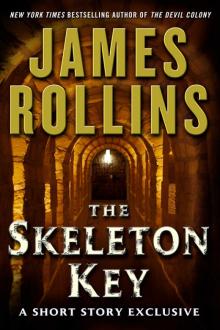 The Skeleton Key
The Skeleton Key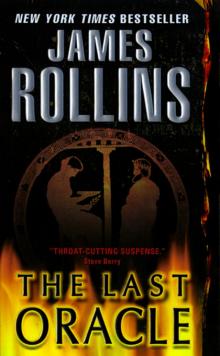 The Last Oracle
The Last Oracle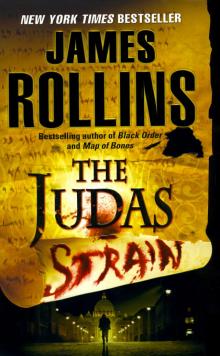 The Judas Strain
The Judas Strain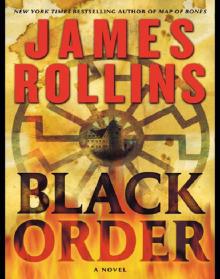 Black Order
Black Order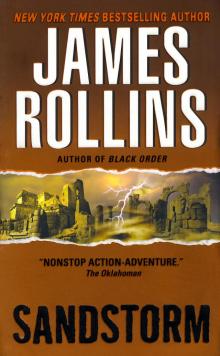 Sandstorm
Sandstorm Ghost Ship
Ghost Ship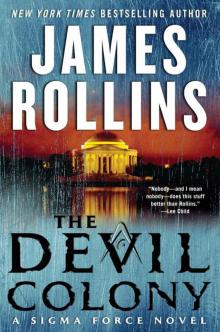 The Devil Colony
The Devil Colony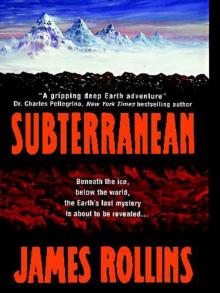 Subterranean
Subterranean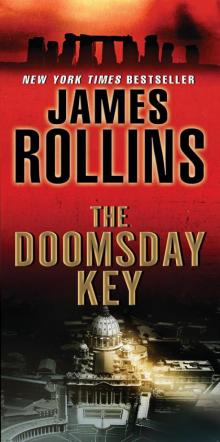 The Doomsday Key
The Doomsday Key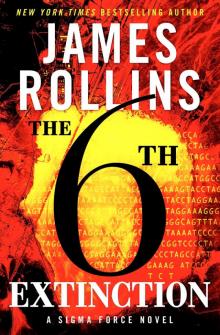 The 6th Extinction
The 6th Extinction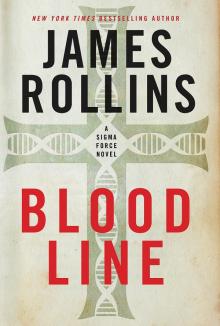 Bloodline
Bloodline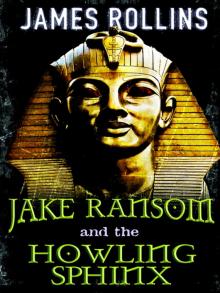 Jake Ransom and the Howling Sphinx
Jake Ransom and the Howling Sphinx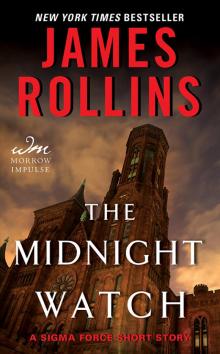 The Midnight Watch
The Midnight Watch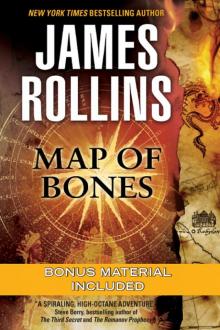 Map of Bones
Map of Bones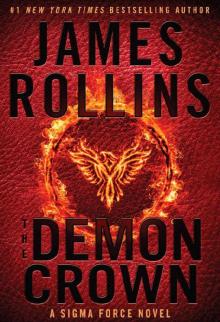 The Demon Crown
The Demon Crown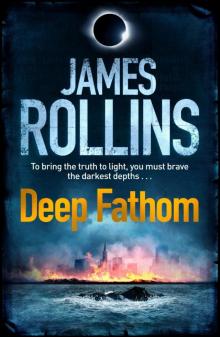 Deep Fathom
Deep Fathom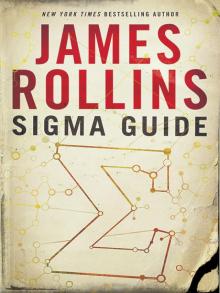 Sigma Guide
Sigma Guide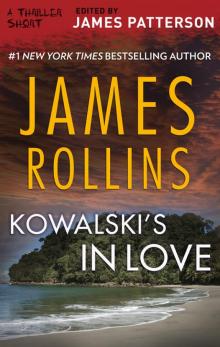 Kowalski's in Love
Kowalski's in Love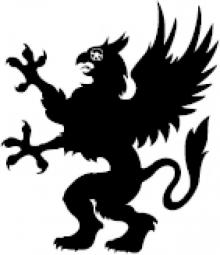 Jake Ransom and the Skull King's Shadow
Jake Ransom and the Skull King's Shadow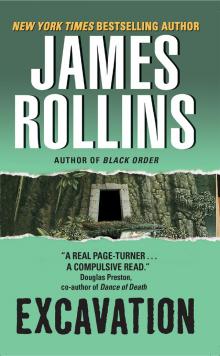 Excavation
Excavation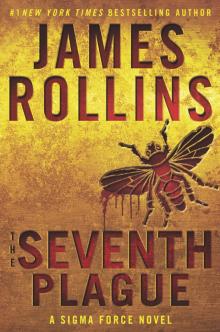 The Seventh Plague
The Seventh Plague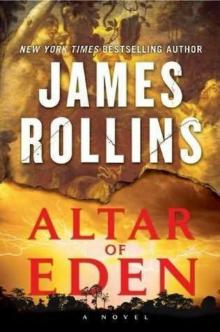 Altar of Eden
Altar of Eden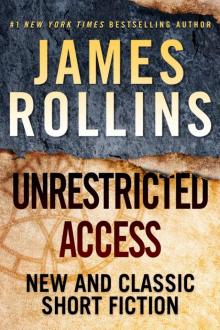 Unrestricted Access: New and Classic Short Fiction
Unrestricted Access: New and Classic Short Fiction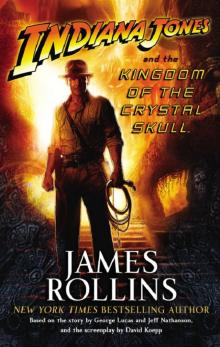 Indiana Jones and the Kingdom of the Crystal Skull
Indiana Jones and the Kingdom of the Crystal Skull Crucible
Crucible The Eye of God
The Eye of God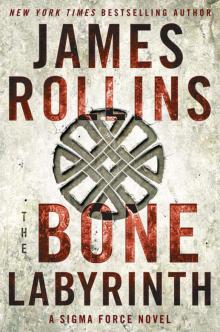 The Bone Labyrinth
The Bone Labyrinth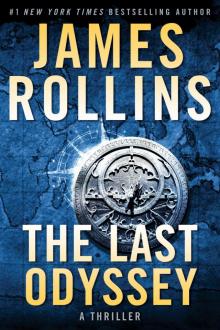 The Last Odyssey: A Thriller
The Last Odyssey: A Thriller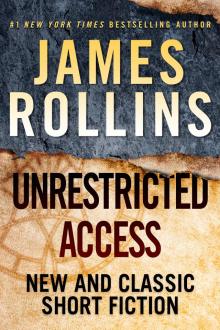 Unrestricted Access
Unrestricted Access Amazonia
Amazonia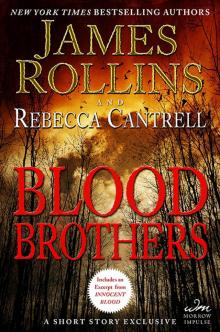 Blood Brothers: A Short Story Exclusive
Blood Brothers: A Short Story Exclusive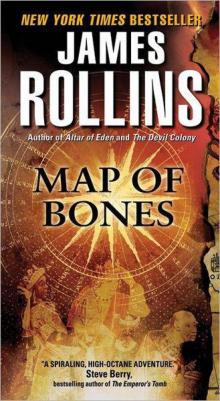 Map of Bones: A Sigma Force Novel
Map of Bones: A Sigma Force Novel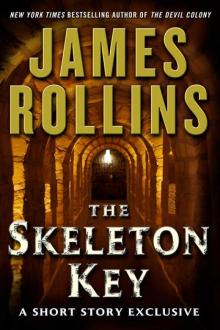 The Skeleton Key (sigma force)
The Skeleton Key (sigma force)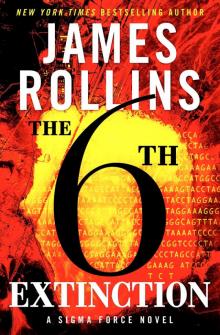 Sigma Force 10 - The Sixth Extinction
Sigma Force 10 - The Sixth Extinction Innocent Blood
Innocent Blood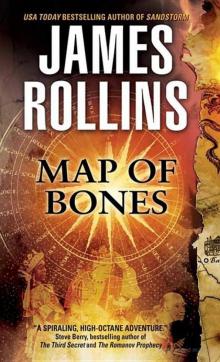 Map of Bones sf-2
Map of Bones sf-2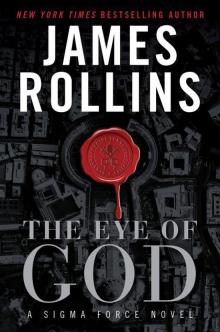 The Eye of God: A Sigma Force Novel
The Eye of God: A Sigma Force Novel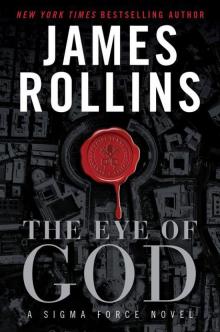 The Eye of God: A Sigma Force Novel sf-9
The Eye of God: A Sigma Force Novel sf-9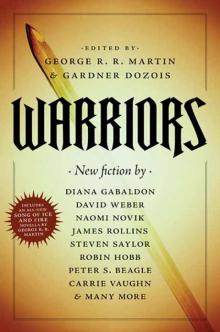 The Pit
The Pit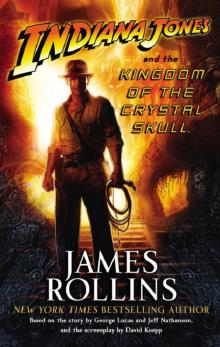 Indiana Jones and the The Kingdom Of The Crystal Skull
Indiana Jones and the The Kingdom Of The Crystal Skull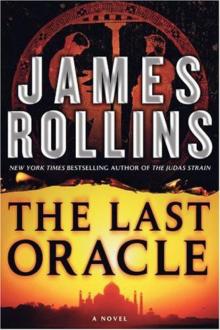 The Last Oracle (2008) sf-5
The Last Oracle (2008) sf-5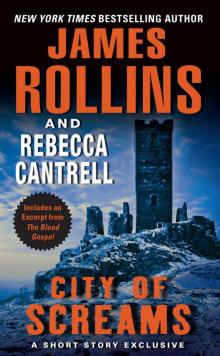 City of Screams
City of Screams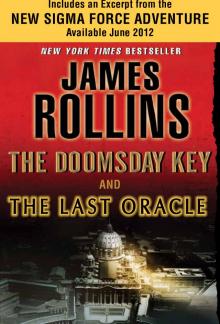 The Doomsday Key and The Last Oracle with Bonus Excerpts
The Doomsday Key and The Last Oracle with Bonus Excerpts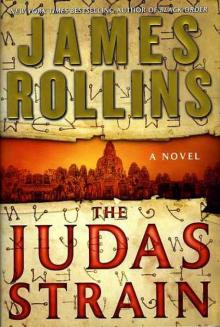 The Judas Strain sf-4
The Judas Strain sf-4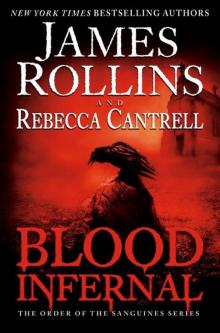 Blood Infernal
Blood Infernal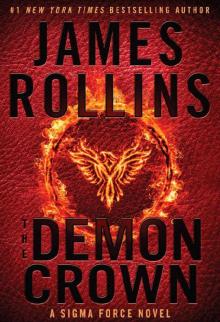 The Demon Crown: A Sigma Force Novel
The Demon Crown: A Sigma Force Novel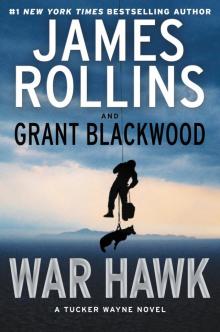 War Hawk: A Tucker Wayne Novel
War Hawk: A Tucker Wayne Novel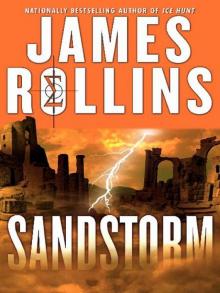 SANDSTORM sf-1
SANDSTORM sf-1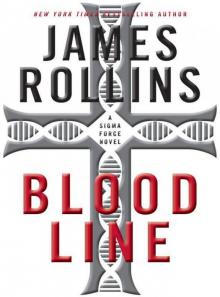 Bloodline: A Sigma Force Novel
Bloodline: A Sigma Force Novel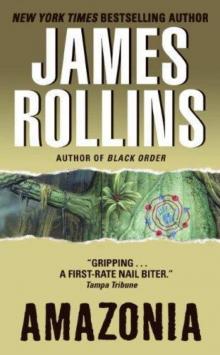 Amazonia: a novel
Amazonia: a novel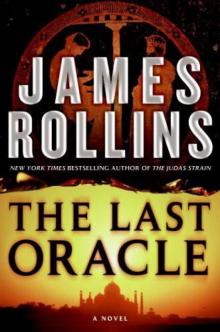 The Last Oracle: A Sigma Force Novel
The Last Oracle: A Sigma Force Novel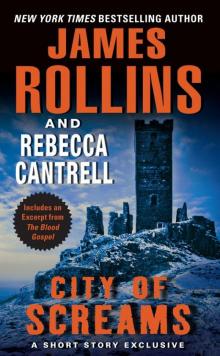 City of Screams (the order of the sanguines)
City of Screams (the order of the sanguines)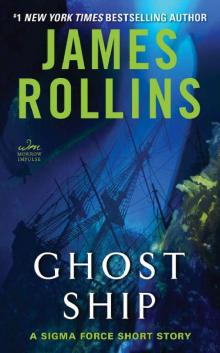 Ghost Ship: A Sigma Force Short Story
Ghost Ship: A Sigma Force Short Story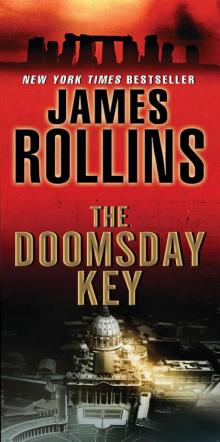 The Doomsday Key: A Sigma Force Novel
The Doomsday Key: A Sigma Force Novel